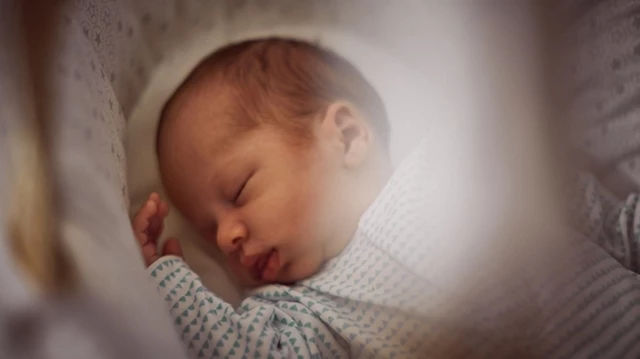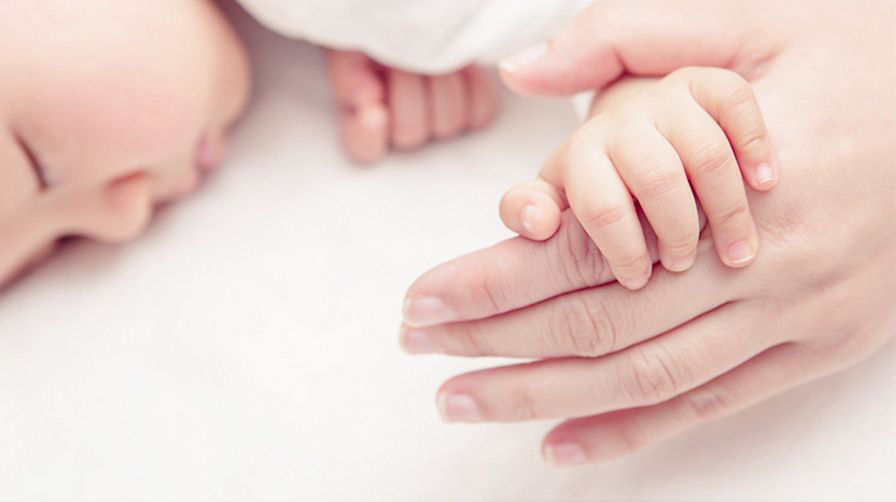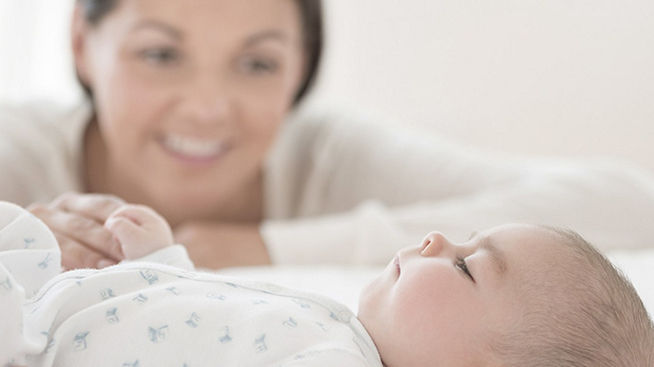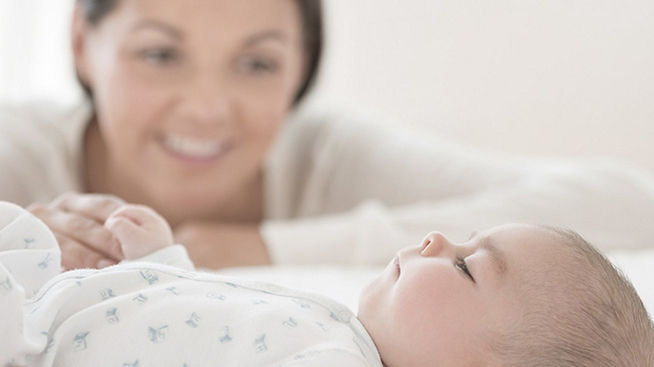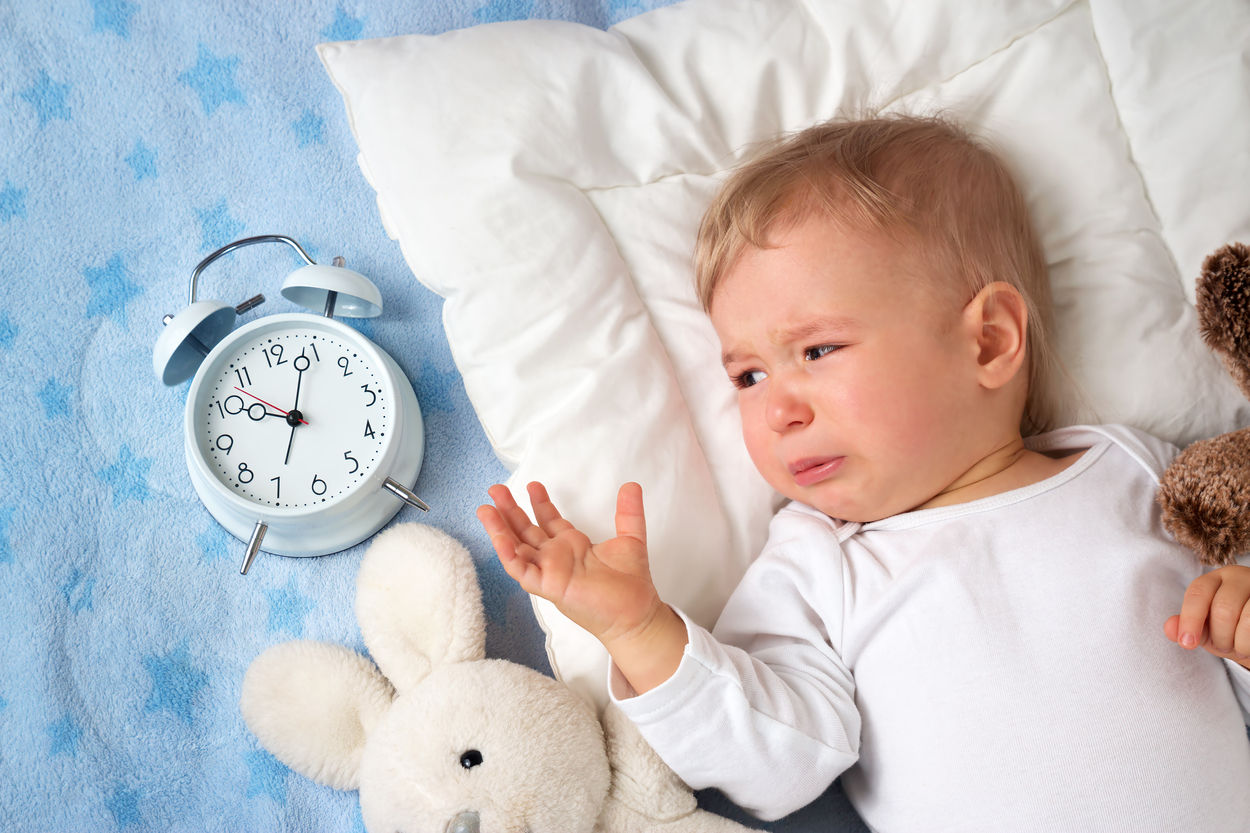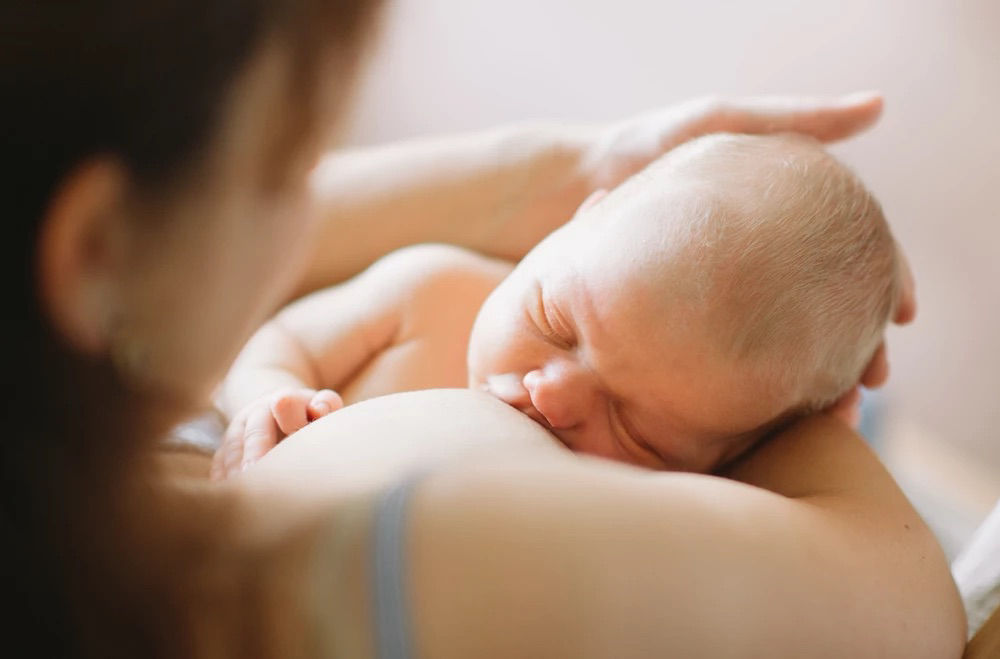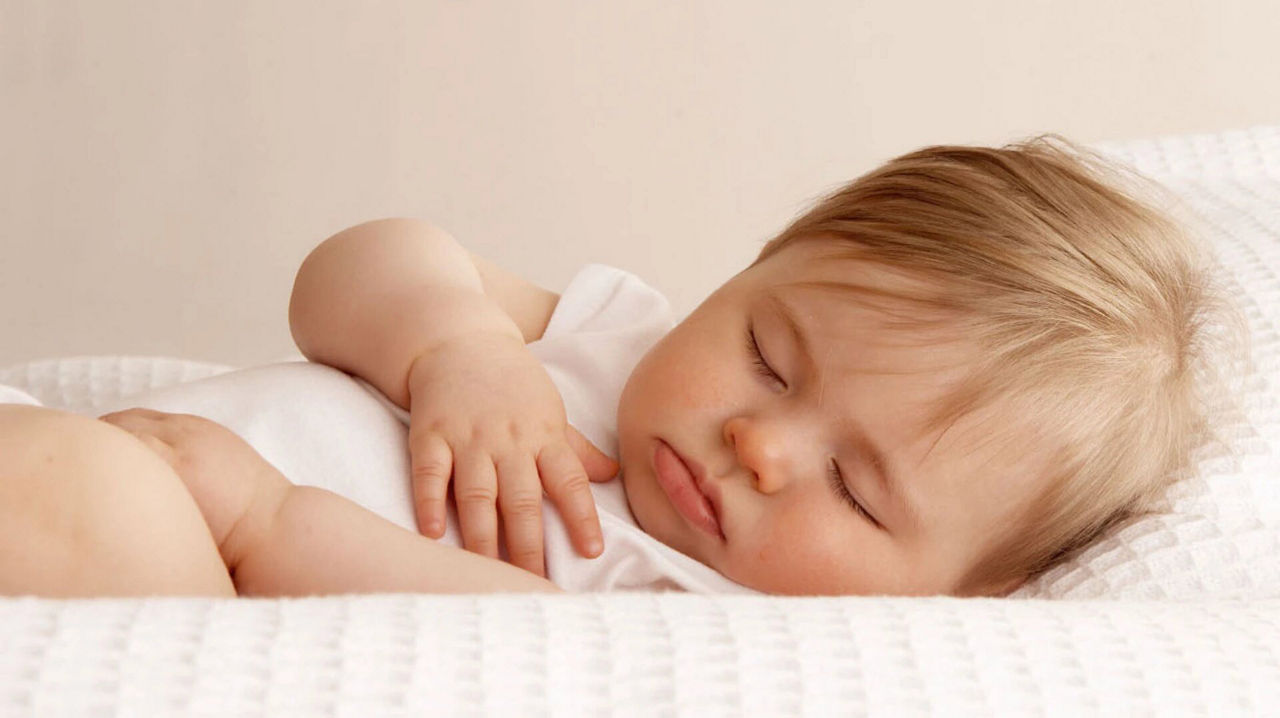You may think your baby never sleeps; or maybe they sleep too much just at the wrong times (those of you with night owls will exhaustedly agree). But let’s consider what ‘normal’ sleep is. Babies sleep patterns develop very quickly over their first twelve months of life.1 Newborns can sleep for up to 18 hours a day2, with night sleep duration increasing steadily. After a few weeks you will find your baby is awake for longer periods, and consequently sleeps for longer episodes,3 with night wakings also reducing. 1 However all babies differ. Some sleep more than others. Some for longer periods, others in shorter bursts. Some babies sleep through the night early on, while others take much longer (if they get there at all).
It’s easy to consider sleep as an isolated behaviour – your baby is either awake or asleep. But there are different states of consciousness through which your baby cycles several times a day. Two are sleep states; babies spend 50% of their time in each of these states: 3,4
- Active Sleep (also known as REM [rapid eye movement] sleep): breathing becomes more regular, your baby may startle at some noises
- Deep Sleep (sometimes referred to as quiet sleep or Non-REM sleep): Baby lies quietly without moving; twitching and other movements stop
There are also waking or ‘active states’:4
- Drowsiness: Baby’s eyes start to close; and they begin to fall asleep
- Quiet Alert: Baby’s eyes open wide, their face is bright and body is quiet
- Active Alert: Their face and body move actively
- Crying: Baby cries, perhaps screams; their body moves in very sporadic ways
Learning about infant states and cues is important as it helps you become more aware and responsive to the subtleties of your baby’s sleep patterns.3
